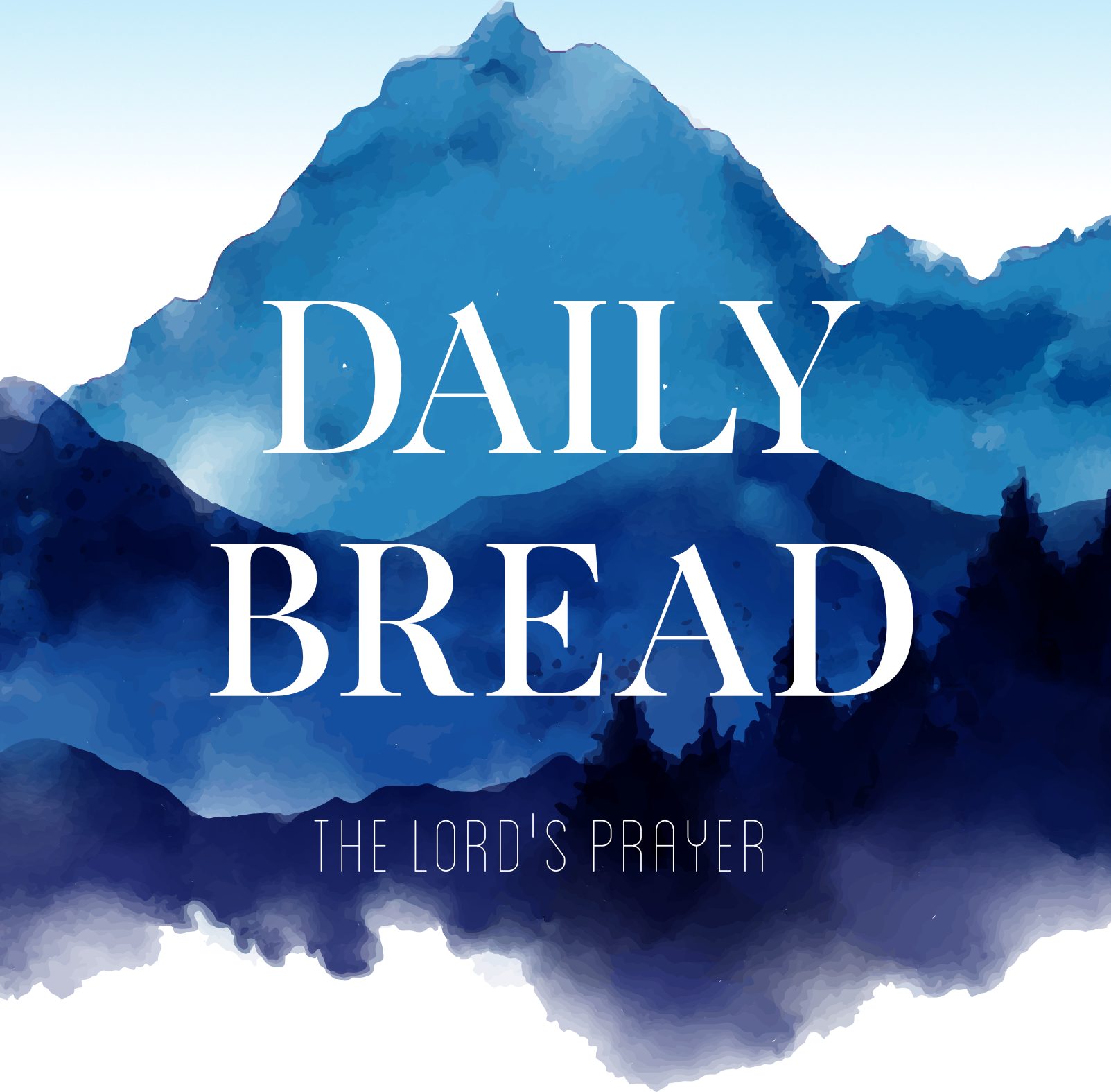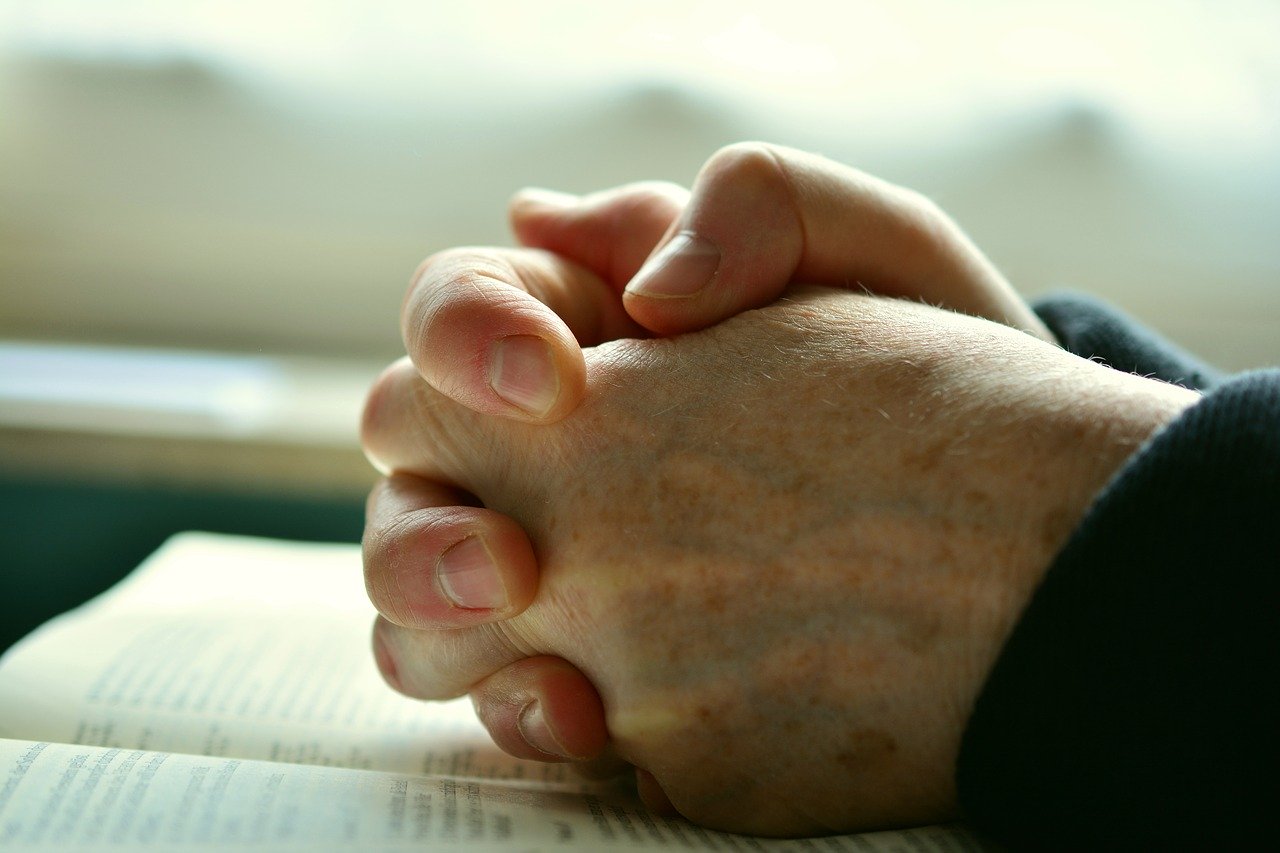Daily Bread
As we continue looking at the Lord’s prayer in our series, “Pray Like This,’ we see a shift in the focus of our prayers from heavenward to dirt and dust. The second table of the Lord’s prayer sets its mind on ‘us’ rather than God with the ‘your’ portions of the prayer. We pray for the glory and honor of God’s name; we pray for God’s Kingdom to come, and God’s will to be done. We petition Our Father for his name, kingdom, and will in all of its splendor, majesty, power, and grace. Then we come to the rumblings of our stomach. Our needs and desires are temporal and repetitive in what we need. Today we will be looking at this petition, “Give us this day, our daily bread.” We will be looking at this petition as five requests we are making when we pray, “Give us this day, our daily bread.”
I. Fatherly request
The first thing we pray when we pray the Lord’s prayer is “Our Father.” All of the petitions are a prayer to our Father in heaven. The request is made to our loving Father in heaven. As Jesus explains in Matthew 7:11, “If you then, who are evil, know how to give good gifts to your children, how much more will your Father who is in heaven give good things to those who ask him!” When we pray for our daily bread, we are petitioning God our Father to give us our needs. We realize that every good and perfect gift comes from the Father of lights (Jam 1:17). We are not demanding God to give us daily bread. Praying this prayer does not then mean we can be the sluggard or the lazy man able yet unwilling to work. This prayer is not a handout. Paul writes in 2 Thessalonians 3:10, “If anyone is not willing to work, let him not eat.” However, the opposite is sadly correct. How often we do not see our resources as God’s. To the extreme we say we earned our daily bread by the sweat of our brow and take for granted the blessings God has given us. John Calvin explains that even the reason we ask shows it is not from our hand, “The fact that we ask that it be given us signifies that it is a simple and free gift of God, however it may come to us, even when it would seem to have been obtained from our skill and diligence, and supplied by our own hands.” We do not see the gift of able bodies as a blessing from God. We tithe and think the remainder is for us, rather than God has given us all of our resources to steward appropriately. The Heidelberg catechism question 27 says, “[God] still upholds heaven and earth, with all creatures; and so governs them, that herbs and grass, rain and drought, fruitful and barren years, meat and drink, health and sickness, riches and poverty, yea, all things, come not by chance, but by His fatherly hand.” We pray for our daily bread as we pray to our heavenly Father.
II. Family request
The next point is that this prayer is found in the plural, not in the singular. The prayer is not “give me this day my daily bread.” Our thoughts are probably thinking of ourselves and not of others when we pray this petition. I stated before that this petition is not a handout. However, we realize seasons come and go, and this affects our community. The church in the Book of Acts shows the breaking of bread, which can either mean the Lord’s Supper or fellowship meals (Acts 2:42-46; 20:7-11; 27:35). The unity found in the church shows that we should rejoice with those who rejoice and weep with those who weep (Rom 12:15). Your possessions do not become church’s when you become a member. They remain in your name, but we need to remember they come from our Father in Heaven. James asks the rhetorical question, “If a brother or sister is poorly clothed and lacking in daily food, and one of you says to them, “Go in peace, be warmed and filled,” without giving them the things needed for the body, what good is that?” (Jam 2:15-16). I believe if Christians across the globe shared their abundance with those who needed it, we would see the eradication of poverty (actual not perceived) in the church. This was essential to the early church with the daily distribution (Acts 6:1). The elders did not eliminate the work because it is not necessary to the work of the church but established the diaconate of seven faithful men to carry out the ministry of mercy. A great book on this topic is ‘The Deacon; Biblical Foundation for Today’s Ministry of Mercy.’ The prayer for our daily bread should be on our minds when we hear of people losing their jobs, going through difficult times in their life when we hear of a single mom trying to make ends meet.
III. Fundamental request
The prayer for daily bread is not about an extravagant or luxurious lifestyle. The request is for the bare necessities, not a lavish feast. We do not pray for a daily doughnut, cake, or cookie but the foundation of food, bread. We do not even pray for more than making a sandwich. How often our prayers are shaped like a child’s Christmas list of extreme and expensive toys compared to simple prayers of simple sustenance to get us through the day. EM Bounds says, “Desire precedes prayer, accompanies it, is followed by it. Desire goes before prayer, and by it, created and intensified. Prayer is the oral expression of desire.” Often, we pray for wants over needs. Our prayer should reflect the simple understanding of our dependence upon God. BM Palmer states simply, “Prayer is creaturely dependence.” We depend upon God for everything the food on our table and the breath in our lungs. Praying for daily bread shows our dependence upon him even if our cabinets are full. We can become discontent because God has not given us our wants rather than our needs. Jeremiah Burroughs says, “I am discontented because I have not these things which God never yet promised me, and therefore I sin much against the Gospel, and against the grace of faith.” We should seek to be content with our daily bread, even if others have a burger or steak. As Paul writes to Timothy, “but if we have food and clothing, with these, we will be content. (1 Tim 6:8). The request should be seen as a simple and basic request but not solely for bread, John Calvin expands, “not only for food and clothing but also for everything God perceives to be beneficial to us, that we may eat our daily bread in peace.”
IV. Familiar request
The prayer should be a familiar request to us. The prayer should be daily on our lips. The word used to translate daily bread (ἐπιούσιος/epiousios) is only found in the Lord’s prayer in Matthew and Luke (Matt 6:11; Luke 11:3). Many translators believe it is daily bread; previously, some scholars believed it to mean bread for tomorrow. Either way, the request is temporal and short term. We are not praying for bread for a year, but today or tomorrow. The daily bread is similar to the historical account of the Israelites wilderness wanderings when God provided mana from heaven daily for forty years. They would collect additional mana on Fridays to keep the sabbath holy on Saturday (Exodus 16). God provided for the whole nation of Israel, in the wilderness, for over 14,600 days. How often would they take his provision for granted, and how often we do likewise. Our prayer should be familiar to us. Many times, in the Bible, we are told not to be anxious or worried about tomorrow and focus on today (Prv 27:1; Phil 4:6; Matt 6:31-34; Luke 14:15). This does not mean we do not plan or save for retirement or a rainy day, but even in saving, we are trusting in God’s provision for us daily.
V. Faith request
Finally, we are praying for our daily bread through faith. The early church Fathers write about this petition as a spiritual request. Today many commentators believe that the request is only a prayer for physical bread. The pendulum can swing too far in either direction. It is hard not to read this petition and think of the great scriptures pointing to our needs, not only of bread for our bellies but also our need for bread for our souls. Matthew 4:4, “But he answered, “It is written, “ ‘Man shall not live by bread alone, but by every word that comes from the mouth of God.’ ” John 6:27, “Do not work for the food that perishes, but for the food that endures to eternal life, which the Son of Man will give to you. For on him God, the Father has set his seal.” John 6:51, “I am the living bread that came down from heaven. If anyone eats of this bread, he will live forever. And the bread that I will give for the life of the world is my flesh.” The Lord’s supper is given as spiritual nourishment and growth in Christ, as found in the the Westminster Confession of Faith 29.1. We realize we have a soul as well as a body and caring only for the body and neglecting the soul is not healthy. The request for daily bread is not only seen as a prayer for physical bread but also spiritual bread to feed our souls. We need the living bread that came down from heaven, daily.






